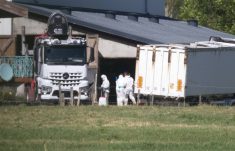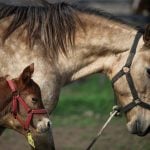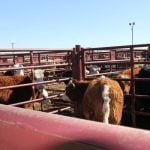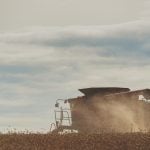Plans to move Prairie community pastures out of federal management over the next six years won’t affect any operations this season, the federal government has pledged.
"No pastures will be affected this grazing season and we will work in collaboration with our provincial partners and with all stakeholders to make sure the transition away from federally-operated pastures is as smooth as possible for producers," Agriculture Minister Gerry Ritz said in a release Wednesday.
"This change will create a great opportunity for provinces, stakeholders or those who use the land to take over pasture management."
Read Also

U.S. livestock: Cattle fall sharply as Trump says he’s working to lower beef costs
Chicago cattle futures fell sharply on Friday after U.S. President Donald Trump said his administration was working to lower the…
The federal government’s plan to get itself out of the pasture business emerged last week following the release of the 2012 federal budget, in a list of substantial cuts and reorganizations within Agriculture and Agri-Food Canada.
One of AAFC’s moves will see its Agri-Environment Services Branch, which operates the community pastures, merged into a new Science and Technology branch.
AAFC has now informed "all unions, management and staff" of its plan for the pastures, in which 10 pastures will be divested in 2013, followed by additional pastures each year until "full divestiture is achieved in 2018."
Grazing and breeding services on remaining pastures are to be maintained throughout the transition period and pasture patrons "will receive as much notice as possible," the government said.
The six-year stretch is expected to allow time for provinces, municipalities, pastures users and "other stakeholders" to help manage the transition.
The current community pasture system includes 61 sites in Saskatchewan, 24 in Manitoba and two in Alberta. The Manitoba Co-operator, in its April 19 edition, quoted a Public Service Alliance of Canada spokesman as saying 10 of those Manitoba pastures would be closed over the next three years.
"We’ll have to talk to the producers who use the pastures" about the sites’ future use, Manitoba Beef Producers general manager Cam Dahl told the Co-operator’s Allan Dawson.
"We want to make sure this land stays in agriculture use and that the producers who were using it still have access to it in some form," Dahl said. "That’s going to take some consultation and some time."
"Capacity and expertise"
The Agri-Environment Services Branch was formed in a 2008 merger of the Prairie Farm Rehabilitation Administration (PFRA), National Land and Water Information Service (NLWIS) and Agri-Environmental Policy Bureau (AEPB).
Seven of the branch’s offices in Western Canada — Dawson Creek in B.C., Medicine Hat, Vegreville and Hanna in Alberta and Gravelbourg, Rosetown and Moose Jaw in Saskatchewan — are to close in the next 12-18 months, an AAFC official told the Co-operator.
The community pastures were the PFRA’s biggest and longest-running soil conservation program on the Prairies, set up in the 1930s to reclaim badly eroded soils. They now cover over 2.2 million acres of rangeland, used each summer by about 3,100 producers, who pay fees to graze about 220,000 head of livestock.
AAFC said it is now in talks with the governments of Manitoba and Saskatchewan to make sure the divestiture of the land and phase-out of the pasture program are done in a way that "optimizes future economic and employment opportunities for the rural communities affected."
AAFC said it also plans to work with the provinces, municipalities and industry to transition pastures to "those with the capacity and expertise to manage them efficiently." Discussions with pasture patrons will get underway "in the near future."
Emerging details of cutbacks at AAFC now also include plans to close seven of the department’s smaller research farms over the next 12 to 18 months.
According to the Co-operator, farms scheduled for closure include those at Fort Vermilion, Alta., Regina, Sask., Kapuskasing and Delhi, Ont., Frelighsburg and Chapais, Que. and Bouctouche, N.B.















